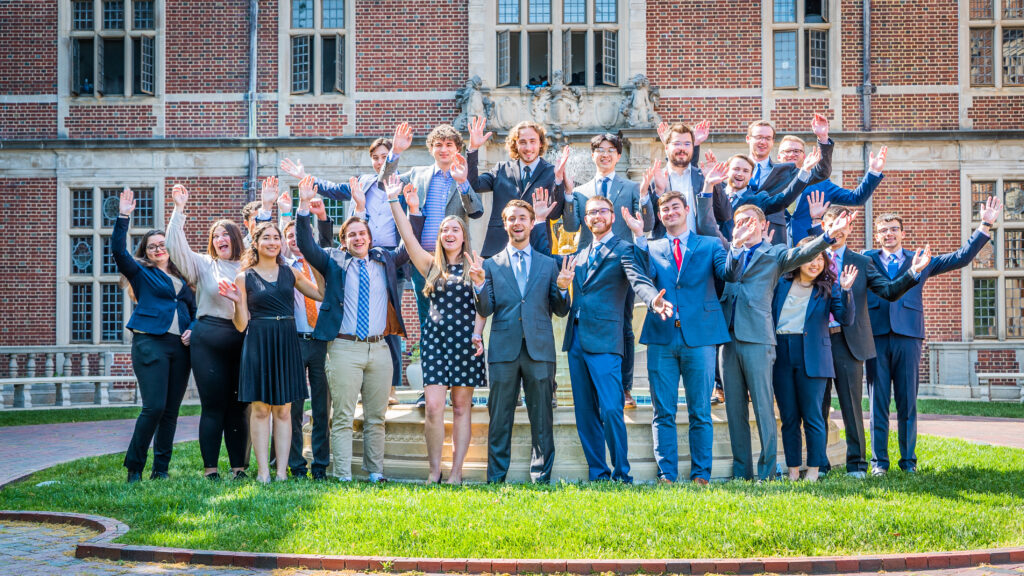
In no particular order
The U.S. Application of the Stockholm Agreement: A Feasibility and Cost Analysis
Kasey Kennedy & Alex Resio
This thesis introduces the concept of United States application of the Stockholm Agreement damage stability criteria to determine the feasibility of these requirements and enhance the level of safety on United States roll-on/roll-off passenger (Ro/Pax) vessels. An additional component of the thesis is an analysis of the costs related to the refit of an existing United States Ro/Ro vessel to demonstrate the expected costs to accommodate these proposed regulations.
Development of a Method for Comparison of Shipboard Power Transmission Models
Tori Kim & Spencer Margosian
This thesis has two main objectives. The first is to create high-level mathematical models for determining the overall efficiency and life-cycle cost of AC and DC power transmission systems in a shipboard setting. The second is to develop a guide for marine engineers which will allow them to determine which model is preferable during the concept design phase. This guide is specifically based around the design of a newbuild, diesel-electric, ocean-going vessel.
The Stimulation and Effect of Flutter Instability on a Fat Foil in a Current Energy Generator
Cole Matthes & Luke Sullivan
The heaving motions of a bluff body, such as a cylinder or foil, submerged in a flow undergoing vortex induced vibrations, can be harnessed using a power take-off as part of a current energy generator. The principal objective of the thesis was to test the effects of varying flow speed, pivot point placement, heave and pitch stiffness on the heaving amplitude of a cylinder and a “fat foil” constructed from a faired cylinder. The pivot points and restoring moments in pitch were adjusted to induce flutter instability and determine the effects of flutter on the heaving motion. The data showed these variations, and the introduction of flutter instability all influence the vortex induced vibration response of the foil and can be utilized to increase the potential for energy extraction compared to a cylinder.
An Intelligent Collision Avoidance System Based on Deep Reinforcement Learning
Nathaniel Phillips
The objective of this thesis is to investigate deep learning and its use for collision avoidance on autonomous vessels. As part of this work, a deep neural network was chosen and implemented into a boat operating in a simulated environment. The network was trained using deep reinforcement learning to avoid collisions in real-time with the use of Unity. The network was also trained to react with basic US Coast Guard rules of the road in mind.
A Feasibility Study of a Modularized Fuel Cell System and Its Implementation for a Ferry
Alex Lytle & Jonathan Allen
Our thesis investigates the feasibility of implementing a scalable, modular hydrogen fuel cell system onboard the Molinari class of Staten Island Ferries. This thesis explores the physical feasibility, cost, and emission reductions associated with several different system architectures scaled from hybrid configurations to full fuel-cell power.
The Seakeeping of a Tension Leg Platform (TLP) in Stochastic Seas
Si Cong Chen & Adriana Torres Rodriguez
A Simplified Test for Recreational Vessel Stability: Investigating the Sallying Constant
George Hambleton & Mark Reed
Creation of a Ride Control Algorithm Using an Artificial Neural Network
Eric Heilshorn & Kyle Murphy
Experimental Analysis of the Effect of Moonpool Recess Geometry on Total Resistance in
Calm Water and Incident Waves
Jack Kirk & Lorenzo Pensabene
Carbon Capture on Ships: A Feasibility Study
Erin Postma
Valuation and Emissions Analysis of Slow Steaming Tankers Maximizing Wind Propulsion
Decklyn Uttmark
Simulating Inland Waterways: A Microscopic Model of Inland Waterway Traffic Flow
Jacob Dillistin
